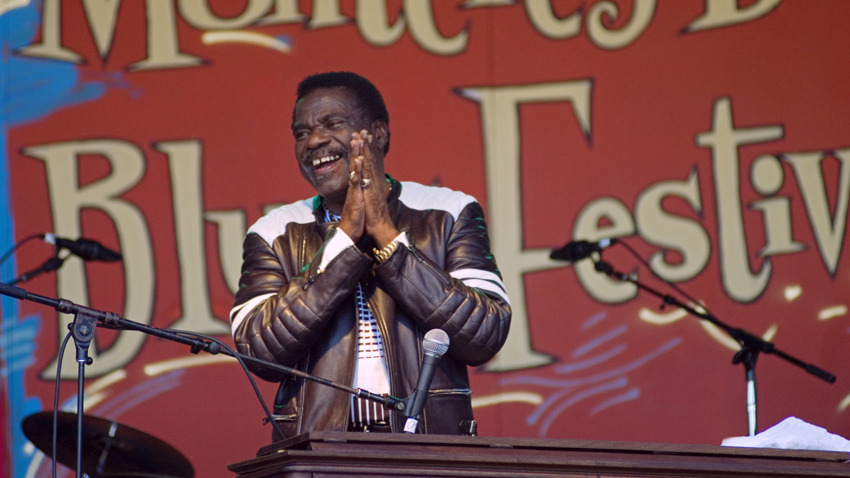
Who is he?
Depending on who you ask, Billy Preston is either the fifth Beatle (one of many pretenders to that particular title, but arguably one of the few with a genuine claim), one of the greatest Rolling Stones sidemen ever, or simply a child prodigy who made the most of a phenomenal musical talent.
A gifted organ and piano player, by the age of ten he was out performing with gospel singer Mahalia Jackson and by 12 he'd appeared in films and was building a reputation for musicianship that turned the heads of players twice his age. He toured with Little Richard in the early '60s, a stint that would see him meet a fledgling Beatles, and in 1963 played keys on Sam Cooke's final album Night Beat.
He backed the Everly Brothers in '65 and The Monkees in '66, before hooking up with The Beatles again in '68 to work on The Beatles (or as most fans know it the White Album). In the end, it was his association with the Fabs that was to cement his reputation as one of the all-time session greats. He linked up with them again on Abbey Road and, most famously, on Let It Be, where he became the only musician to share a credit with the band on Get Back (credited to 'The Beatles with Billy Preston').
As if being one of the highlights of the final years of The Beatles' career wasn't enough, he went on to work on both John and George's debut solo albums before heading off to provide keys for The Rolling Stones.
These fertile years set the template for the rest of the '70s for Preston, whose phenomenal list of credits includes Stones sessions galore - including Sticky Fingers and Exile On Main St. - Aretha Franklin's Young, Gifted and Black, Sly And The Family Stone's There's A Riot Going On, Bob Dylan's Blood On The Tracks and a successful solo career. Throw in one of the greatest afros ever grown, and you've got all the ingredients needed for a bone fide legend.
Why is he a legend?
Get the MusicRadar Newsletter
Want all the hottest music and gear news, reviews, deals, features and more, direct to your inbox? Sign up here.
First and foremost, he was an incredibly expressive and inventive organist with killer instincts. If he needed to shred he could, but Preston's greatest asset was his ability to play to the song. You don't get to back The Beatles unless you've got a supernatural understanding of band dynamics, and Preston's affable personality was able to slot right in to any set up. His playing ran from tender to downright savage, and he could sing to boot. A big personality with even bigger chops, it's no surprise that he was top of everybody's list when it came to sourcing keys players in the '60s and '70s.
Timeline
1946 - Born Houston, Texas.
1956 - Begins touring, backing gospel singer Mahalia Jackson.
1963 - Releases debut solo album 16 Yr. Old Soul and records Night Beat with Sam Cooke.
1969 - Appears on Let It Be alongside The Beatles.
1970 - Records All Things Must Pass with George Harrison, Plastic Ono Band with John Lennon.
1972 - Contributes keys and organs to Exile On Main St. with The Rolling Stones.
2006 - Dies aged 59.
Key Performances
Little Red Rooster - Sam Cooke
The organ is front and centre here, and it's Billy Preston - aged 16 - that makes it bark, scratch, howl and bite.
The Beatles - Get Back
Preston was on hand to help smooth over the fractious Let It Be sessions, and help The Beatles get back to doing what they do best. While he was there, he threw down the joyour electric piano backing on Get Back, including a barnstorming solo.
The Rolling Stones - Can't You Hear Me Knocking
There's Preston magic all over Can't You Hear Me Knocking, including dramatic swells and perfectly pitched stabs and licks in the extended second half breakdown that highlight just how good he was in an ensemble. Priceless playing.
“Every note counts and fits perfectly”: Kirk Hammett names his best Metallica solo – and no, it’s not One or Master Of Puppets
“I can write anything... Just tell me what you want. You want death metal in C? Okay, here it is. A little country and western? Reggae, blues, whatever”: Yngwie Malmsteen on classical epiphanies, modern art and why he embraces the cliff edge









